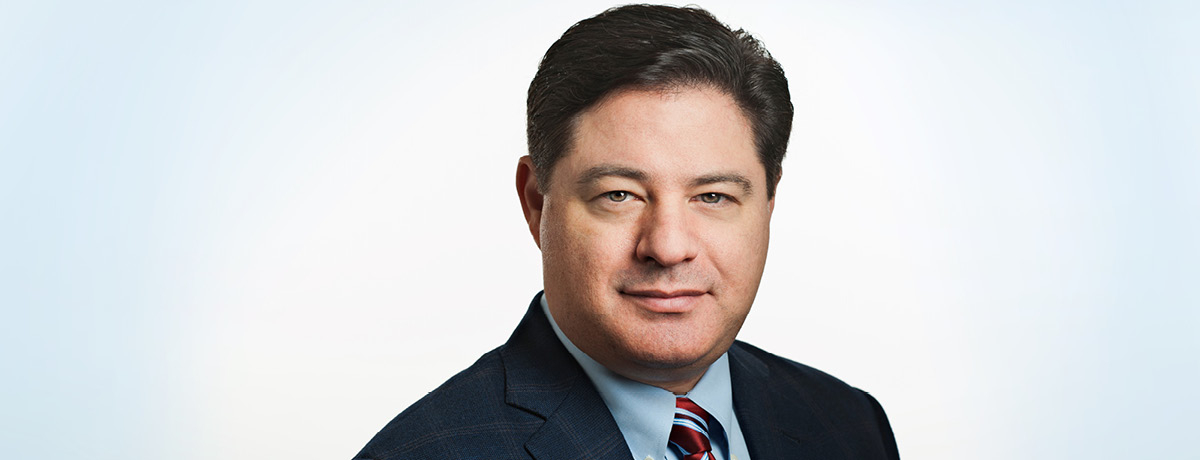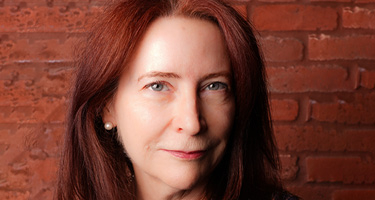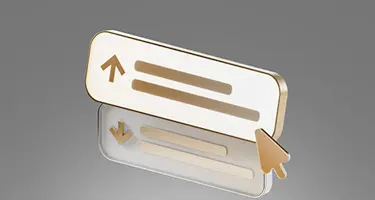Robert A. Mandel is a partner at Zuber Lawler LLP, the full-service law firm known worldwide for its shrewd, aggressive and creative representation of businesses and entrepreneurs in several emergent industries and traditional industries of all kinds. Based in the firm’s Phoenix office, which he opened in 2020, Mandel is a senior member of Zuber Lawler’s litigation group and the leader of its appellate practice.
Recognized since 2020 by Best Lawyers® for Appellate Practice, Mandel is widely regarded as an authority on appellate advocacy, as an exemplary writer and as the “go to” lawyer for anyone who wants to optimize their chances of success by embedding an appellate lawyer on their litigation team. With courts safely reopening and as more verdicts and final judgments are rendered, a new wave of appeals will surely follow. For a unique insight into how organizations and their counsel can strategize for appeals amid an uncertain and evolving legal landscape, Best Lawyers recently sat down with Mandel for an illuminating conversation.

Best Lawyers: Why should companies hire an appellate lawyer?
Mandel: There are numerous ways to approach that question, but I’ll first address what I believe is top of mind for most CEOs and CLOs when the prospect of retaining appellate counsel is raised—'how will this attorney add value?’
The fact is that appellate lawyers add value in different ways and those ways can differ depending on a variety of circumstances. These include such factors as the stage of the case, the nature of the issues in contention, the personalities of the trial lawyers, the dynamic between the trial lawyers and the client, the dynamic between the appellate lawyer and the trial lawyers and the dynamic between the appellate lawyer and the client.
Best Lawyers: What unique skills do appellate lawyers bring when challenging the trial court’s final judgment or appealable interlocutory decisions?
Mandel: At the most fundamental level, the appellate lawyer brings at least three key attributes to the table. For starters, the appellate lawyer knows both the written and the unwritten rules that govern in the appellate forum, which can be ‘perilous terrain’ for anyone who does not spend a lot of time there.
To understand a second fundamental attribute of an appellate lawyer, one has to understand the function of an appellate court. An appellate court is not a place to complain about each and every transgression the client or its trial lawyer believes the trial judge committed over the course of the case. It is assumed that the trial judge made errors. The question is whether any such error was so prejudicial to the affected litigant that it warrants a reversal or vacatur of the decision. Thus, the appellate lawyer sets out to identify only the most egregious erroneous rulings, if there were any, and almost never presents more than three if the goal is to capture the panel’s attention and not dilute the appeal with issues that it will deem ancillary or even trivial. Sometimes, the rulings most likely to catch the appellate panel’s attention and result in relief are not the ones that the trial lawyer or the client have in mind.
A third fundamental attribute of an appellate lawyer is the ability to articulate the relevant facts—to ‘tell the story’—and the client’s arguments clearly, concisely, persuasively, objectively and dispassionately, both in writing and orally. The appellate lawyer’s work product is equal parts ‘art and science’, and that skill set comes only with experience and self-discipline.
Best Lawyers: How should an appellate lawyer’s approach to a case differ from that of the trial lawyer?
Mandel: The lawyer handling the appeal has to be able to approach the case with ‘a degree of objectivity’ that virtually no trial lawyer possesses if they litigated the case. The longer a trial lawyer was involved in the case, the more convinced they become regarding the ‘truth’ or ’persuasiveness’ of the theory of the case that they have advanced from the outset.
I cannot tell you how many times I’ve read an appellate brief or listened to an oral argument that essentially rehashed the same contentions—right down to the rhetorical flourishes—that the trial lawyer advanced in the trial court. This is most often a mistake—and one that can be avoided only by adding a fresh pair of eyes to the equation.
Best Lawyers: What does the panel expect from appellate counsel’s argument?
Mandel: The panel will not be impressed with, and certainly will not be persuaded by, theatrics of any kind. Nor will it appreciate a brief or oral argument that fails to address the ‘other side of the story’ including the facts and case law that test the client’s positions.
Instead, the panel expects appellate counsel to be especially ‘honest brokers’ in the sense that appellate judges expect the lawyer to discuss and help them understand the relevant facts and legal principles, even if unfavorable to that lawyer’s client, so that they can reach a just decision.
A pure partisan is unlikely to earn the panel’s respect—or, in turn, a favorable decision for the client; it really is all about having a reputation for integrity, professionalism and credibility. Which means that the appellate lawyer has to present both the facts and the law objectively and dispassionately, while at the same time knitting them together in a way that persuades the panel that the client’s position is the correct one.
Words cannot adequately express the amount of time, devotion and discipline required to thread the needle that way.
Best Lawyers: Are you sought out directly by the litigant for your appellate expertise or is it the trial lawyer who reaches out for your help?
Mandel: I am most often contacted by trial lawyers or in-house counsel about appellate engagements. This is highly encouraging because it demonstrates growing recognition that an appellate lawyer can play an extremely valuable role in a case and because establishing the relationship with the client and the case under these circumstances is relatively seamless.
It is also flattering. Most of my referral sources are attorneys against whom I’ve litigated cases, which I view as a testament to the importance of acting professionally even with one’s opponents. A fair number are retired or acting judges before whom I appeared or who have heard about my work from other judges.
Best Lawyers: Do you interact with trial counsel after you are engaged?
Mandel: If I am engaged early in the case as ‘embedded appellate counsel,’ meaning that I am hired to advise the trial lawyers and contribute to the case while it is winding its way throughout the trial court, then the relationship is by definition a continuing one and not much different than if I was located right down the hall from those attorneys at the same law firm.
When I am retained to serve in the traditional role as an appellate advocate after the final judgment or an appealable interlocutory decision is entered, it is not a foregone conclusion that the trial lawyers will stay involved in the case. Things happen, particularly if the relationship between trial counsel and the client has become strained or the client’s budget cannot accommodate both trial and appellate counsel at the same time.
Best Lawyers: How could it benefit the client to have both trial and appellate counsel?
Mandel: It is almost always advantageous to the client if the relationship with trial counsel continues in the traditional post-judgment motion and appellate engagement scenarios. Most of the time, trial lawyers are invaluable partners. It fosters meaningful opportunities to discuss and gain a better understanding of the theory of the case and how it was pieced together, or the choice of arguments made below, or the relevant statutes, case law or public policies. It also allows trial counsel to consult as to when and where in the record an issue was preserved for appeal, or a key ruling was made or important testimony was given.
Sometimes I will ask trial counsel something as seemingly mundane as, ‘why did you phrase the question to the witness this way?’ or ‘explain what you thought the trial judge meant when the judge made this comment from the bench or stated this finding in the minute entry?’ or ‘why did you decide to emphasize this argument over that argument or this precedent over that one?'
I learn a lot of useful information from these interactions and for this reason I consider the relationship with the trial lawyers sacred. It takes a special skill set to collaborate productively with trial counsel in a lawsuit. All the more so when the client did not prevail in the trial court. You have to communicate in a way that sets the right tone and that impinges as little as possible on egos.
The appellate lawyer wears several hats, including that of a diplomat.
One has to be both mindful and strategic in collaborating with trial counsel after a loss—and sometimes after a win. Typically, I am interacting with professionals who convinced not only themselves but also their client years earlier that their theory of the case and their arguments were the best ones they could make. It takes a mixture of collegiality, persuasiveness and understanding to broach the topic of adjusting that theory or those arguments for the appeal, much less to convince them. But often that is exactly what must happen to get the job done.
Best Lawyers: How do you prepare for oral argument?
Mandel: I have found the most effective way to prepare for oral argument is to spend the time necessary to penetrate the record, master the case law and prepare exceptional written work product at the briefing stage.
If you have done that, then eight-tenths of the preparation for oral argument has already happened. Of course, appellate lawyers are only human, and it is impossible to remember everything learned in the course of preparing a brief. I routinely solicit the assistance of colleagues within Zuber Lawler and with other firms together with former appellate judges and respected appellate advocates to participate in moot courts, where they essentially grill me for hours and make me feel completely unprepared.
There simply is no better way to hone your presentation for oral argument than to have your ass handed to you by a panel of colleagues and former judges in a conference room (or a Zoom) beforehand. By the time the second moot court takes place, perhaps a week before the oral argument, I have refined my presentation to a point where only minor adjustments are needed.
While a trial lawyer is trained to express arguments in a more dramatic fashion, that approach will not work for an appellate lawyer. An appellate lawyer must weave together a compelling narrative based on his or her review of the trial court record and express the client’s arguments crisply and dispassionately at oral argument. Even without the drama, that is often a tall order, because, at most, the lawyer is afforded 20 minutes to present their client’s arguments—and most of that time gets eaten up responding to the panel’s questions.
Best Lawyers: You often refer to yourself as an embedded appellate attorney. Tell us what that is and how it is unique.
Mandel: Well, as I mentioned earlier, most people think of appellate lawyers as professionals who get involved in the case when the notice of appeal is filed at the end. I learned many years ago from my mentor, the late Arthur J. England Jr., that the real value-added proposition for the client is to embed the appellate lawyer into the trial team as early in the litigation as possible.
Arthur, who served as Chief Justice of the Florida Supreme Court, taught me that there is no better way to optimize the client’s position for a forthcoming appeal than to participate in key phases of the litigation at the trial court level, well before the mention of an appeal.
I often play a role in formulating the theory of the case, in ensuring that legal arguments are articulated as accurately and artfully as possible, in preparing or participating in the preparation of dispositive motions, in framing the jury instructions, in presenting post-judgment motions to the trial judge and in making certain that issues that might be raised on appeal are not waived.
Best Lawyers: What sets you aside from other appellate lawyers or embedded counsel?
Mandel: I’m not afraid to get my hands dirty by digging deep into the record. Many lawyers simply do not want to do it, as it is an exhausting, frustrating, aggravating and time-consuming process. Even worse, if the appellate lawyer lacks trial court experience, they do not necessarily even know where to look. But it is in the record where you find the gold, the nuggets of testimony, the statements of trial counsel, the remarks of the trial judge and other helpful information that can make all the difference for the appeal.
I feel fortunate to be a commercial litigator. It allows me to bring decades of courtroom experience and knowledge of numerous industries to bare when I take on appellate matters. And I am eternally grateful to my colleagues, mentors and clients for reposing their trust in me to handle their most important matters in the trial and appellate courts.
Work with an Elite Appellate Lawyer
As a veteran commercial litigator who spent the first decade of his career handling complex business disputes with several powerhouse law firms in New York City before moving to Arizona in 2003, Mandel enjoys a nationwide reputation for successfully spearheading post-judgment motions and appeals and for defending clients against them, depending on what side he represents. Mandel is also experienced in the prosecution of petitions for writs of certiorari and mandamus (sometimes called “special actions”) and for handling lower court appeals from city councils and boards. And he regularly prepares amicus curiae (friend of the court) briefs for non-parties who believe their knowledge or experience can assist the court in its decision-making process.
Mandel litigates high stakes matters involving a panoply of business, constitutional and/or public law issues, novel or conflicting legal doctrines and public policies and complex factual scenarios in state and federal courts throughout the nation. At the trial court level, Mandel represents businesses and entrepreneurs in disputes involving everything from claims of common law, constructive or statutory fraud to claims of tortious interference with contract and breach of fiduciary or contractual duties. Many of those cases are “bet the company” disputes. His colleagues and opponents say that his style in the trial court is every bit as tactical as it is tenacious—and always courteous and professional.
At the appellate court level, many of Mandel’s matters emanate from lengthy trials of business disputes. Unlike some, Mandel does not fear rolling up his sleeves and getting his hands dirty wading through boxes (or USB drives) filled with motion papers, exhibits, transcripts and court orders. In fact, he prides himself on his ability to pull apart and “digest” the record, which sometimes includes hundreds, if not thousands, of documents filed over the course of several years and then to distill from it exactly what is necessary to maximize his client’s chances of success. He attributes this skill to decades of experience litigating significant commercial cases in the trial courts.
In a recent appellate matter, Mandel secured a landmark decision at the Arizona Supreme Court that Arizona law immunizes state-licensed medical marijuana dispensaries from state criminal prosecution and conviction for manufacturing and selling—and individual cardholders from arrest, prosecution and conviction for purchasing, possessing and using—medical marijuana in the form of extracts and concentrates. In that case, the Court reversed an intermediate appellate court decision that would have dealt a crippling blow to Arizona’s regulated medical marijuana industry and caused enormous harm to its patient population. Mandel previously secured a crucial victory at the Arizona Supreme Court for the lender, the loan servicer and the mortgage-backed securitization trustee in a case involving non-judicial foreclosures of distressed residential and commercial properties, with more than $1.0 trillion at stake for the banking industry. In another noteworthy matter, Mandel persuaded the U.S. Court of Appeals for the Ninth Circuit to vacate a natural gas distributor’s $60 million punitive damages award against the state’s chief regulator for alleged tortious interference in a proposed merger and then subsequently persuaded the Ninth Circuit to vacate a $4.0 million punitive damages remittitur, resulting in another published decision reducing the award to $1.2 million.
Consult with Robert A. Mandel, partner at Zuber Lawler LLP, on your appellate case today.
































